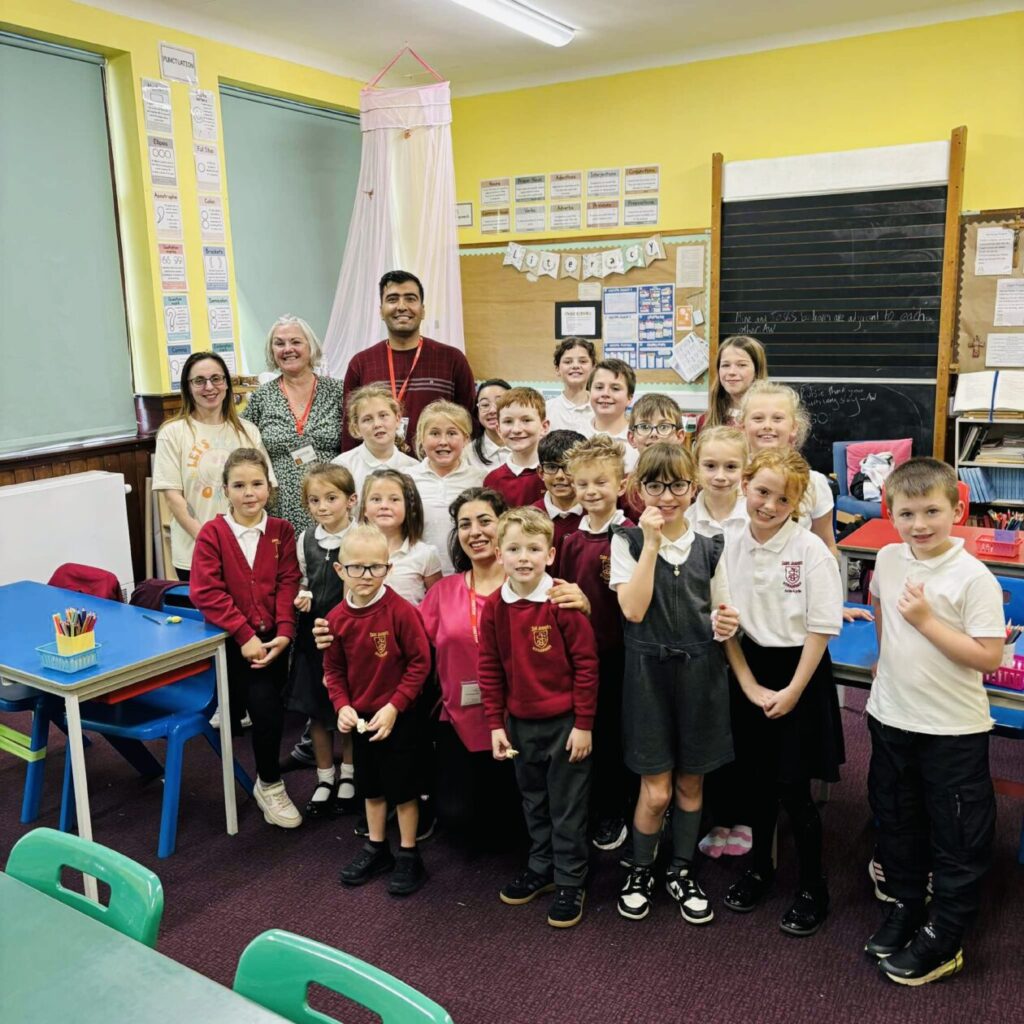🌍 Learning About Diversity – Special Visitors from Iran 🌍
Today our P5–P7 pupils welcomed two special visitors to school – Abraham and Najmeh – who are originally from Iran and now live and work in Berlin, Germany. They kindly came to share their experiences of growing up in Iran and living in Germany.
Before the visit, our children prepared thoughtful questions about culture, daily life and diversity. Abraham and Najmeh answered brilliantly and helped our pupils understand more about the world beyond Scotland.
They told us about:
- Where they come from and what life was like in Iran.
- Languages they speak – English, German, Persian and another local language.
- Living in Germany and how they now work with refugees.
- Food in Iran, especially rice dishes like Callampolo (cabbage and rice).
- Persian New Year, which lasts 13 days, marks the arrival of spring, and ends with a day in nature.
- Different calendars – in Iran it’s the year 1404, not 2025!
- Travel – it takes about 6 hours to fly from here to Iran.
- Traditional music – including guitar and sitar.
- Daily life – such as going out at night because of the heat.
- School systems – how schools in Iran are structured differently to Scotland and Germany.
- Religion and culture – how religion is part of everyday life and how people practise their faith in Iran.
- Dress – traditional clothing and why people may dress differently depending on their culture or religion.
- Comparing Berlin and Iran – Berlin is less crowded and the climate creates a different café culture.
🍬 The children also got to taste an Iranian treat called Gaz – a chewy nougat sweet often eaten at special occasions – which they loved trying!
This visit helped our children see how people’s lives and experiences can be different but also share many similarities. It supported our ongoing learning about diversity, respect and global citizenship.
A huge thank you to Abraham and Najmeh for inspiring our pupils, and to Donna Westbrook for bringing our lovely visitors in. 💛
UNCRC Articles:
- Article 2 – Non-discrimination
Our visitors helped pupils see that all children should be treated equally, no matter where they are from. - Article 12 – Respect for children’s views
Pupils prepared and asked their own questions, showing their voices are valued. - Article 30 – Children from minority or indigenous groups
Learning about different cultures shows respect for children’s identity, language and traditions.
SHANARRI Indicators:
- Included – All pupils took part in the Q&A session, ensuring everyone had the chance to learn.
- Respected – Children’s questions and ideas were valued during the visit.
- Responsible – Pupils showed maturity and respect when asking about religion, dress and culture.
Sustainable Development Goals (SDGs):
- SDG 4 – Quality Education
Learning directly from visitors provides rich, real-life education about the wider world. - SDG 10 – Reduced Inequalities
Understanding diversity and respecting differences helps tackle prejudice and inequality. - SDG 16 – Peace, Justice and Strong Institutions
Encouraging dialogue, respect and understanding promotes peace and inclusion.
Relevant Meta-skills:
- Communicating – Pupils asked clear, respectful questions to our visitors.
- Curiosity – Children showed genuine interest in different cultures, school systems and traditions.
- Sense Making – Pupils compared life in Iran, Berlin and Scotland to understand similarities and differences.
- Collaborating – Working in groups to prepare and share questions fostered teamwork.
- Feeling – Developing empathy for people from different backgrounds and experiences.
Relevant Strands of Faith:
- Other World Religions – Pupils learned about religion in Iran and how faith shapes people’s lives.
- Reign of God – By respecting diversity and caring for others, we act as members of God’s family.

